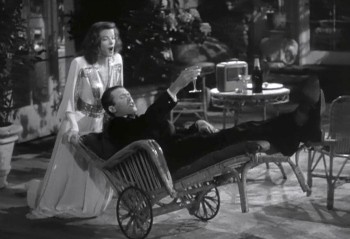Some Cures For The Hiccups
by Nate Hopper

So you have the hiccups, and you’d like to get rid of them. Chances are, if you’re out, that your companions will have advice to offer (hold your breath, drink backwards from a glass, etc.). But how can you know which folksy cure works best? Science.
Most studies on curing hiccups employ hedging words like “probably” and “might” as a means of reporting that there is “no sure way” of stopping the things. But sift through enough of them and you’ll get some insight into what’s going on in your body when you have a case of hiccups, which “may” in turn help you find your own personal fix. So, the basics. A hiccup is a surprise spasm that shrinks your diaphragm and pulls your lungs down. This causes a sudden inhale that your vocal cords quickly block. It’s a reflex — likely triggered by one of two causes: either one of several nerves has been jolted, or your stomach has expanded too far because you’ve swallowed too much air (say, after wolfing down a meal or downing a drink), which results in too little carbon dioxide in your blood.
There are two means of stopping hiccups then. The first is to present your nerves with something else to react to; the second is to try to increase the amount of CO2 in your blood.
Tricking Your Nerves
As a woman on Dr. Oz’s website so enthusiastically demonstrated, being scared might just shake you of hiccups. As Dr. David Eibling explains in the Expert Guide to Otolaryngology, your startle reflex may “override” your hiccups reflex. So after the scare, your nerves start fresh and won’t keep sending the message to hiccup.
You could also prompt other reflexes for the same effect. For example, you could put a teaspoon of sugar on the back of your tongue to get to the nerve endings there (if you’re at a bar and can’t get no suga’, try a lemon wedge), or wiggle your ear to activate its nerve endings.
You could also press a tongue depressor or a long cotton swab to the soft part of the roof of your mouth to trigger a gag reflex (you always bring depressors and swabs along with you to the bars, don’t you? Don’t you?). Discovery Health calls this “tickling” (I call it gagging), although they do say you could also have someone tickle you in the normal fashion too — either way, I’m sure you could turn this into foreplay. (Seriously.)
If you aren’t feeling playful, you could also try to soothe the nerves. One method: Take a long swig of water — being careful as you do that you don’t gulp in too much air (which is probably why the elementary school cure of sucking on a water fountain’s stream usually doesn’t work). Dr. Oz recommends drinking the water upside down (read: lurched over). Discovery Health also suggests taking a tablet or two of an antacid with magnesium, which helps with the nerve irritation and you can do right-side-up.
Increasing Your CO2
To up your sanguineous carbon dioxide, hold your breath. You can count to some high number while doing it. You could also plug your nose and jump on one foot, as Dr. Oz advocates. Or, to the same effect, you could repeatedly breathe into a paper bag, sucking back in carbon dioxide. Or you could close your mouth, pinch your nose and try hard to exhale (if you’re at a bar and are trying to get some suga’ from a medical-type, refer to this as the “Valsalva maneuver”).
If these don’t work, you may not be convinced enough you’ll succeed to induce a potential placebo effect, so you should “probably” just wait it out, as most cases fix themselves. But if you keep hiccupping for days, months or 68 years, go see a doctor and get them to talk to you in normal human speak.
Nate Hopper is a summer Awl reporter.
